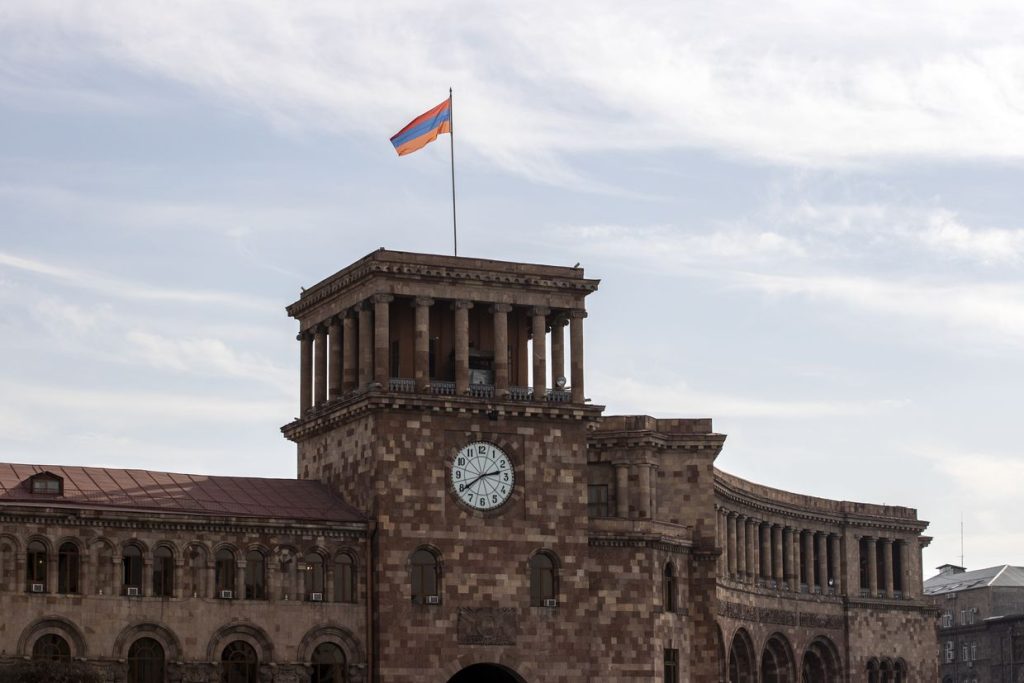Bilateral trade between Russia and Armenia has been flourishing since 2022, leading to suspicions that Armenia is helping Moscow avoid sanctions. This has caused a strain in political relations between the two countries, particularly after Russian “peacekeepers” did not prevent Azerbaijan’s offensive into the Nagorno-Karabakh region, which is primarily populated by ethnic Armenians. Despite this, trade between Armenia and Russia has been on the rise, with Armenia’s exports to Russia tripling in 2022 and almost doubling in 2023. In 2023, Armenia’s trade with Russia accounted for over 35% of the country’s foreign trade, compared to the EU’s 13% share.
The Armenian economy’s high dependency on trade with Russia has made it challenging for the country to join sanctions against Moscow without facing significant economic consequences. The increase in Armenia’s exports to Russia is mainly linked to the re-exporting of products from third countries, including technical equipment, diamonds, and gold. Currently, these products are not under sanctions, but there is a possibility that the West may view the re-exports as a way to circumvent sanctions. If this happens, all Armenian exports could be at risk. Despite this, the re-export process is transparent and documented by Armenia’s public statistics service.
Prime Minister Nikol Pashinyan has stated that Armenia will leave the Russian-led Collective Security Treaty Organization (CSTO) if the military alliance does not address Armenia’s collective security concerns. This threat further highlights the strained relations between Armenia and Russia, as Armenia seeks to ensure its security interests are adequately addressed within the alliance. The threat of leaving the CSTO reflects Armenia’s efforts to assert its sovereignty and independence in the face of growing tensions with Russia.
The possibility of Armenia aiding Russia in circumventing sanctions through increased exports raises concerns about the country’s economic and political alignment. As Armenia’s trade with Russia continues to grow, questions arise about the extent of Armenia’s independence in foreign policy decisions and its ability to uphold international norms. The reliance on Russia for trade and economic stability puts Armenia in a precarious position, as it navigates between maintaining economic stability and upholding international obligations.
The implications of Armenia’s trade relationship with Russia extend beyond economic considerations and into geopolitical and strategic concerns. Armenia’s role in assisting Russia in bypassing sanctions could have ripple effects on its international standing and relationships with other countries. The complex dynamics between Armenia, Russia, and other regional actors further complicate the situation, as Armenia seeks to balance its interests with the demands of external stakeholders. The evolving nature of Armenia’s trade dynamics with Russia underscores the complexities of navigating global politics and economics in an increasingly interconnected world.
Overall, the growing trade ties between Armenia and Russia have raised questions about Armenia’s role in helping Russia circumvent sanctions and its overall alignment with Moscow. The dependency on Russian trade presents challenges for Armenia in navigating its foreign policy decisions and balancing its economic interests with international obligations. As tensions between Armenia and Russia persist, the country faces tough choices in asserting its independence while maintaining stability and security in a volatile geopolitical landscape. The evolving situation underscores the complexities of Armenia’s position in regional and international relations and the need for careful navigation in a rapidly changing global environment.


